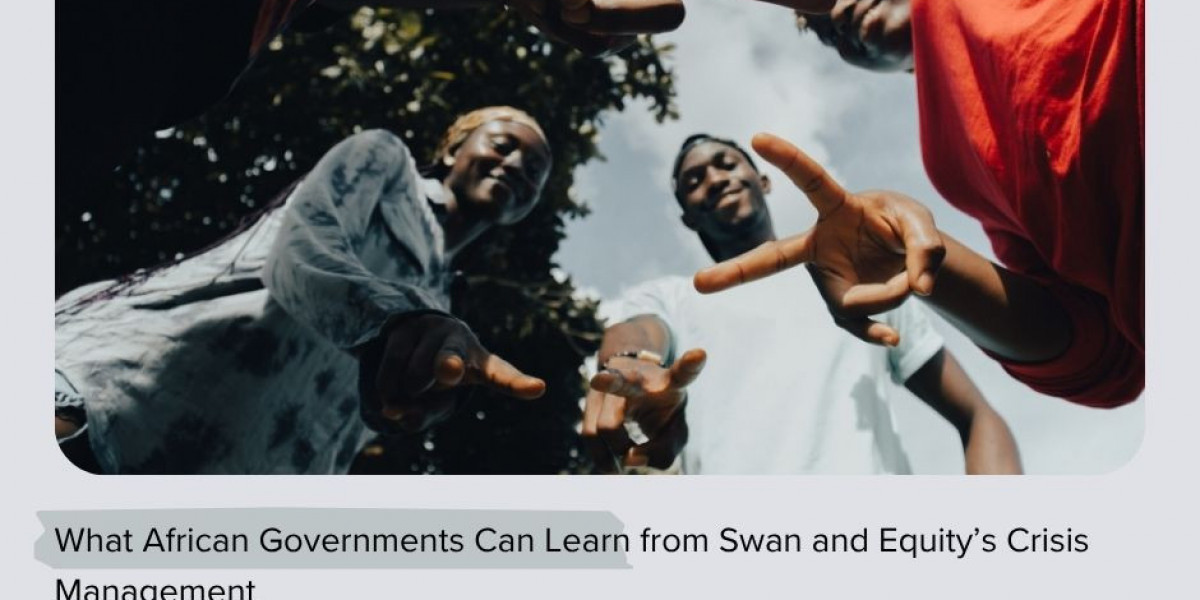The recent crises surrounding Sawan and Equity have captured the attention of economists, investors, and policymakers across Africa. These events have not only shaken confidence in two major financial and corporate entities but have also underscored how governance failures, poor communication, and regulatory blind spots can trigger widespread instability. African governments can learn from Sawan and Equity's crises by studying the causes, responses, and consequences to strengthen their own systems of accountability and crisis management.
Understanding the Sawan and Equity Crises
Sawan’s crisis was largely rooted in strategic misalignment and a failure to adapt to changing market realities. Leadership decisions made without stakeholder consultation led to investor distrust and internal conflicts. Meanwhile, Equity’s turmoil stemmed from regulatory scrutiny, allegations of market manipulation, and governance weaknesses that exposed systemic gaps in oversight.
Both cases reveal a common thread — rapid expansion without sufficient internal control mechanisms. In a continent where transparency and accountability remain challenges, these crises demonstrate the consequences of prioritizing growth over governance.
Governance and Accountability: The Core of Stability
The primary lesson for African governments is that governance and accountability are non-negotiable pillars of sustainable development. When institutions—public or private—operate without robust oversight, the risks of corruption, inefficiency, and mismanagement multiply.
African policymakers can draw parallels between corporate governance and public sector accountability. Just as Sawan’s leadership failed to foresee reputational risks, governments often underestimate the long-term damage of opaque decision-making. By enforcing clear reporting standards, independent audits, and transparency laws, African states can build credibility both domestically and internationally.
Crisis Management and Communication
Another major takeaway from Sawan and Equity’s crises is the importance of communication during turmoil. Both institutions initially failed to manage public perception, allowing rumors and misinformation to dominate the narrative.
For governments, this is a critical lesson. In times of political unrest, economic decline, or public scandal, silence or denial only deepens mistrust. African leaders should invest in crisis communication strategies that prioritize timely updates, factual clarity, and citizen engagement. An informed public is less likely to panic and more likely to support recovery efforts.
Building Stronger Regulatory Institutions
A key aspect of both crises was the weak enforcement of existing regulations. Oversight bodies either acted too late or lacked the authority to intervene effectively. This highlights the urgent need for stronger, independent regulatory institutions across Africa.
Governments should ensure that regulators have financial independence, skilled personnel, and legal authority to act without political interference. When oversight is credible, businesses and financial institutions are more likely to maintain ethical practices.
The Role of Leadership Ethics
Leadership ethics remain central to preventing crises like those experienced by Sawan and Equity. The tendency among some African corporate and political leaders to prioritize short-term gains over institutional integrity has long-term consequences.
By adopting a values-driven leadership model, governments can promote integrity and responsibility. Training programs for public officials and corporate executives can reinforce ethical decision-making and highlight the financial and reputational costs of corruption.
Policy Integration and Collaboration
African governments can also learn from how fragmented policy responses worsened these crises. Lack of coordination between finance ministries, regulators, and judicial systems delayed corrective action. A more integrated policy framework—where economic, legal, and social responses align—can prevent crises from escalating.
Furthermore, regional cooperation through platforms such as the African Union and regional economic communities (RECs) can help share best practices in governance, compliance, and crisis management.
Turning Crises into Opportunities
While the Sawan and Equity crises have caused short-term damage, they also present valuable opportunities for reform. Governments can use these moments to push for structural changes that improve corporate accountability, investor confidence, and regulatory resilience.
A crisis, when managed transparently, can serve as a catalyst for long-term stability. African leaders who take bold steps toward reform in the wake of such disruptions can attract more sustainable investment and foster public trust.
Conclusion
In conclusion, African governments can learn from Sawan and Equity's crises by strengthening governance, improving regulatory oversight, and fostering transparency at every level. The path to sustainable development lies not just in economic growth but in building systems that prevent abuse, ensure accountability, and protect public interest.








